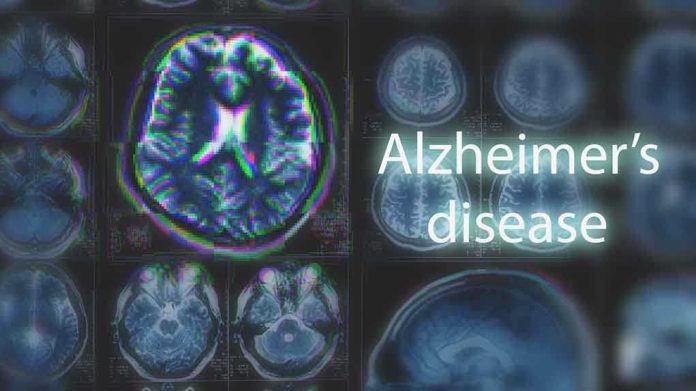
One simple blood test could reveal the missing link behind why your memory is slipping—and why fixing it might drastically cut your risk of Alzheimer’s by a staggering 59%.
Story Snapshot
- Meta-analysis shows low vitamin D raises Alzheimer’s risk by 59%.
- Research spans nearly 11,000 people across multiple years and studies.
- Vitamin D deficiency is common, especially in older adults.
- Scientists debate whether boosting vitamin D can actually prevent dementia.
Alzheimer’s Risk and the Vitamin D Connection: The Evidence Mounts
Researchers uncovered a striking pattern: people with low vitamin D in their blood are far more likely to develop Alzheimer’s disease. The 2023 meta-analysis pooled data from six major studies, revealing that vitamin D deficiency was linked to a 59% higher risk of Alzheimer’s compared to those with healthy levels. The analysis drew on nearly 11,000 participants, spanning a decade of research and multiple countries. This is not just a statistical fluke—these numbers represent real lives and futures at risk.
Vitamin D status is measured by blood levels of 25(OH)D, with clearly defined thresholds for deficiency and sufficiency. This biomarker is now being used not just to diagnose bone health, but as a potential red flag for neurodegenerative disease. For anyone over age 40, who’s watched a loved one’s mind fade or worried about their own memory, this shift in thinking is seismic. It means there’s a modifiable factor—something you can actually measure and possibly change.
How Did Vitamin D Become a Brain Health Superstar?
Alzheimer’s has haunted families for generations, but only in the last 20 years have scientists zeroed in on vitamin D as a potential culprit. The turning point came in 2014, when a landmark prospective study published in Neurology found a strong association between low vitamin D and higher dementia risk. Subsequent research, including a 2022 cohort study, reinforced the message: vitamin D deficiency could mean a 54% jump in dementia risk. But it was the 2023 meta-analysis that solidified vitamin D’s role, providing the largest and most robust evidence to date.
This research didn’t emerge in a vacuum. Scientists were already aware that vitamin D receptors are present in the brain, and that the vitamin plays a key role in neuronal health and inflammation control. Observational studies linked deficiency not just to dementia, but to stroke and brain atrophy. The public health community started to take notice, especially as vitamin D deficiency became recognized as a widespread problem among older adults.
Who’s Driving the Science—and Who Stands to Benefit?
Academic researchers, epidemiologists, and public health experts are at the heart of this story. They’re motivated by the urgent need to clarify what actually causes Alzheimer’s—and how we might prevent it. Major medical journals have amplified these findings, while advocacy groups push for more awareness and research funding. Supplement manufacturers and healthcare providers also have a stake, as demand for vitamin D testing and pills continues to rise.
The power dynamics are clear: researchers build the evidence, regulators set guidelines, and advocacy groups shape public opinion. But the ultimate decision-makers are the health authorities and journal editors who determine what advice reaches your doctor’s office. Lead authors like Littlejohns, whose work is widely cited, influence policy and even the supplement market.
Can Raising Vitamin D Levels Really Prevent Alzheimer’s?
Here’s where things get complicated. The association between low vitamin D and Alzheimer’s is strong, but causality has yet to be proven. Researchers warn that randomized controlled trials are needed to confirm that boosting vitamin D actually reduces dementia risk. Some experts highlight biological plausibility: vitamin D helps clear amyloid, reduces inflammation, and protects neurons. Others caution that early-stage dementia may itself lower vitamin D, as people spend less time outdoors.
Despite these debates, the consensus is shifting. The evidence base for vitamin D’s role in cognitive health is now too robust to ignore. If causality is confirmed, public health interventions—like routine vitamin D screening and supplementation—could dramatically reduce the burden of Alzheimer’s. Short term, expect more older adults to ask for vitamin D tests; long term, we could see policy changes that reshape dementia prevention.
What Does This Mean for You—and for Society?
For anyone over 40, especially those with family histories of dementia, this research offers hope and a call to action. Vitamin D deficiency is easy to identify and correct. If it truly drives Alzheimer’s risk, simple interventions could save millions from memory loss and spiraling healthcare costs. Healthcare systems would benefit from lower dementia rates, while the supplement industry could see booming demand.
Economic, social, and political stakes are high. The cost of dementia care is rising, and anything that lowers risk is good news for families and the bottom line. Policy makers now face pressure to update guidelines and messaging. The next phase will be critical: large-scale trials to test if vitamin D supplementation actually changes outcomes. Until then, the open question remains—can one vitamin really change the trajectory of a disease that’s defined aging for generations?
Sources:
Neurology (Littlejohns et al., 2014)
MindBodyGreen summary of 2023 meta-analysis
Optoceutics summary of recent cohort and mechanistic studies



